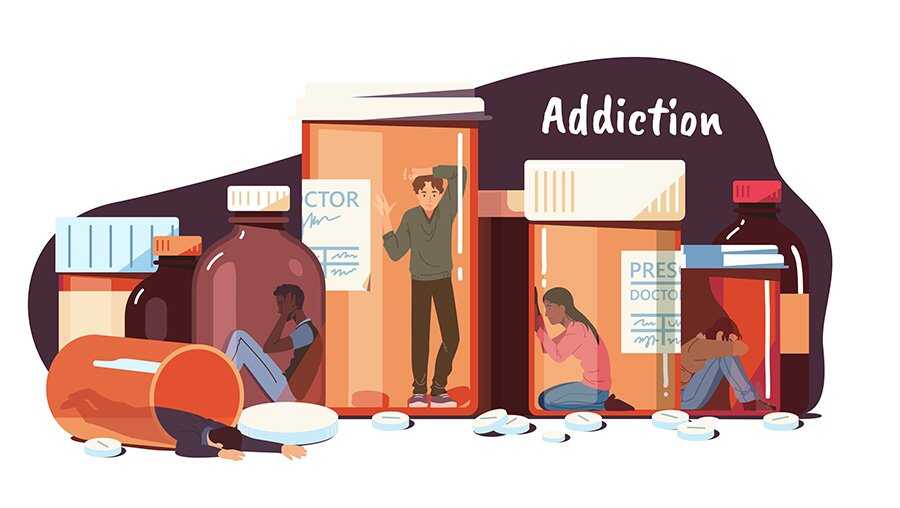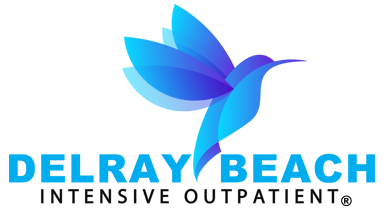Substance use disorder, sometimes erroneously referred to as substance abuse disorder, is among the most serious of mental health disorders. According to the American Psychiatric Association in their Diagnostic and Statistical Manual Of Mental Disorders, this complex disease is defined by intense urges to engage in alcohol or illicit drug use despite the fact that drug abuse is causing them clear negative consequences.
These negative consequences can include legal problems, as someone may break obviously applicable laws regarding the use of certain illegal drugs or exhibit poor judgement due to the cognitive effects of their drug use. The person may also experience significant relationship problems or physical problems due to their frequent drug use, such as in someone who might lose weight due to drug induced lack of appetite or who might routinely fight with their spouse about their excessive use of alcohol.
However, only a small percentage of people who try alcohol or other drugs go on to develop substance use disorders. Thus, fully understanding drug addiction requires learning that addiction is about an individual’s overall psychology more than it is about alcohol or drug use itself.
Biggest Risk Factors For Drug Abuse And Alcohol Abuse
Though there is no one “cause” of substance use disorders, researchers have identified some significant risk factors for their development. For instance, family history of substance use disorders is the most significant risk factor for developing a substance use disorder that researchers have identified so far.
The relationship between having family members that struggle with drug addiction and developing drug addiction one’s self is also a complicated one that can be partially explained through the fact that relatives may model an unhealthy relationship to substances for their children.
After all, becoming addicted to drugs is based in exposure to drugs or alcohol at least as much as it is to any genetic factors, which is where peer pressure can come in as another significant risk factor. However, biological factors shared between family members, including shared predispositions to mental illness, are also thought to be part of the link.
Mental health disorders like attention deficit hyperactivity disorder, post traumatic stress disorder, bipolar disorder, depression, and anxiety have themselves been linked to increased risk of addictive disorders, and many of these conditions are known to run in families. Mental illnesses may cause a person to experience more negative feelings than others, which they in turn may attempt to escape through drug and alcohol abuse.
Certain drugs also come with a higher risk of substance abuse than others. For instance, narcotic use, a term which typically refers to use of the highly addictive class of drugs known as opioids, comes with a high risk of drug addiction simply because those who use narcotics can easily become physically dependent on the drug.
As far as environmental factors, peer pressure is also dangerous because it can prompt those who experience it to abuse drugs or alcohol at an early age, which also increases a person’s risk of a substance use disorder across their lifetime. Additionally, lower economic status, lack of parental supervision, and a high rate of drug abuse among a teen’s peer group all increase the chance that they may engage in drug use.
However, a high level of family involvement is protective factor for young people when it comes to preventing drug abuse. To learn more about these and other risk factors for drug addiction, or for more help understanding drug use, you can check out the National Institute of Drug Abuse website.
How Substance Abuse Can Progress Into Drug Addiction
Drug abuse can escalate into a full blown substance use disorder in part because of the vicious cycle that drug use creates. Over time, as a person’s brain and body gets accustomed to the substance abused, drugs change the way that their brain functions. This can create the phenomenon known as tolerance, where a person needs more and more drugs or alcohol abuse to experience the same effect or “high” that they did initially.

In the extreme, someone who is addicted to drugs may become so dependent that they begin to need the substance abused just to feel normal, resulting in painful withdrawal symptoms that can emerge when they try staying drug free after becoming fully physically dependent on drugs. Sometimes, this encourages drug use solely to prevent withdrawal symptoms rather than to get high at all.
What To Expect In Drug Addiction Treatment
However entrenched drugs may become in a person’s life, effective treatment for substance use disorder is still possible for the majority of people who suffer from drug addiction. Drugs or alcohol use that stems from mental health issues will generally be treated by addressing the underlying mental health disorder in individual therapy, and, sometimes, with the appropriate prescription medication.
Support groups can also provide people who abuse alcohol or illegal drugs with a safe space where they can share painful feelings, another important aspect of addiction treatment. Drug addiction can be an incredibly isolating experience, so sharing feelings about drug addiction with others who have first hand experience with addiction themselves can help patients to develop meaningful relationships with one another that they can use to strengthen their sobriety as well as greater self understanding.
Treatment approaches for drug use can also include education in alternative coping mechanisms that the person can use rather than resorting to drug use to suppress painful feelings. Addiction treatment also might incorporate fun activities designed to foster holistic wellness, or to help patients relearn how to find joy in things other than drugs or alcohol.
Addiction treatment can be offered on an inpatient or outpatient basis, depending on how severe a person’s substance abuse is and on their individual needs. For instance, physical dependency on certain drugs is sometimes best addressed in an inpatient substance abuse detox program. This is particularly true of alcohol use, since abruptly ceasing alcohol use can result in withdrawal symptoms that are not only highly unpleasant but occasionally physically dangerous.
Treatment For Drug Addiction At Delray Beach IOP
If you or a family member are considering substance abuse treatment, you may want to consider our intensive outpatient program at Delray Beach. We are accredited to treat drug addiction by the National Institute of Health as well as by the Substance Abuse And Mental Health Services Administration, and are equipped to handle patients who suffer from behavioral addiction as well as from addiction to drugs.
Since getting sober is only the first step in recovery, our approach to addiction treatment focuses on healing the person as a whole and taking into consideration their unique mental health needs rather than solely on the issue of drugs.
To do this, we utilize a wide variety of scientifically backed therapeutic techniques as well as more holistic programming to help our patients break free of their emotional dependence on drugs and achieve long term recovery from addiction. To learn more about addiction treatment at Delray Beach IOP, feel free to call us anytime at 833-637-0338 or to contact us online anytime here.
